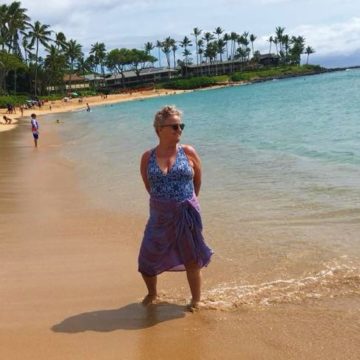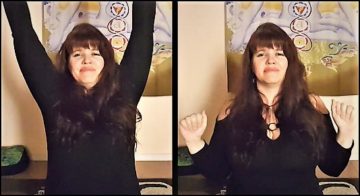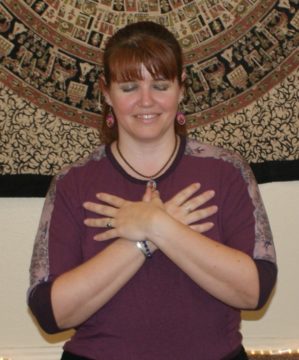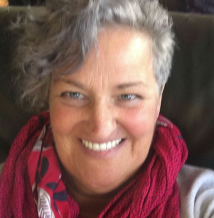 Practices for Addiction Recovery with Kathleen Williams, PhD, LPC, RYT, LFYP2
Practices for Addiction Recovery with Kathleen Williams, PhD, LPC, RYT, LFYP2
Aloha! I just returned from Maui where there is such a felt sense of community. The Hawaiian’s protect their communities, they aid in service when it is needed to help others as much as they can. I spoke with a Hawaiian citizen at length about his brother’s mental illness and addiction as well as his family’s understanding of such struggles. This led to further discussion of community and a gathering of individuals concerned for his brother’s welfare.
This brings me to this topic of addiction to alcohol and other drugs. Today’s society lacks a sense of community. The concept of community, extended family, and family, in general, has been lost. This loss can be viewed as the root cause of addiction. People are lonely. We rely on media, the internet, and social media as a means of connection. As a society, we have lost our sense of deeper connection where a person feels cared about and loved. Wild concepts.
Addicts have a deep sense of loss and disconnection, although they might not know it. It has been said that at the root of all addiction is trauma and I believe at the root of all addiction is a deep sense of longing – to be loved, to belong, and to fit in, especially after a lifetime of trauma and dysfunction.
Addicts typically come from addictive families of origin and hence, are estranged. Traumas suffered can be in the form of physical, mental, emotional, and verbal abuse; more times than not, all the above. Because of this, addicts lack trust and vulnerability resulting in isolation and loneliness. Substance abuse becomes a form of medication to heal the layered traumas from growing up in such a family and community. Addicts are not sick people – we are broken people. We need to recover our connections to ourselves, our families, our relationships, and our communities. Belonging to a tribe that ‘gets you’ and welcomes you with open arms is key to thriving in this journey back to who you really are beneath all the self-medicating. A LifeForce Yoga community can go a long way in supporting your sense of community.
In addition to treatments like detox, 12-step, rehabilitation, or some other type of recovery, a sense of restoration for the whole individual is needed. A restoration of trust and love, of a tribe or a sense of community, and of connection. Within a community, we learn tools that heal us from the inside out from those that have learned to restore and awaken their true nature.
I have found that LifeForce Yoga aids this healing process at the physical, psychological and emotional levels. It aids in this sense of connection and community building as well. The practices guide the individual to have a felt-sense of a Power greater than themselves (Steps 3, 11), to restore a sense of sanity (Step 2), and to better equip one to have a sense of balance in daily living.
The tools offered by LFY can reduce the perception of stress in one’s life perhaps preventing relapse. Stair-Step Breath is perfect for day to day anxieties and worries. In Stair Step Breath (instructions here), we invite an image. Adaptations for those in the recovery process: see an image of the NEW you, here, already thriving in your recovery; or visualize something about you that is different now that you are clean and sober; or maybe just seeing the word FREEDOM written across the sky.
 Early in recovery fatigue and lethargy may be a concern. A few rounds of Bellows Breath (instructions here) can awaken enough energy to get out of bed in the mornings and get energy flowing in the body in this new lifestyle. This can be done sitting up in bed. Follow with Breath of Joy (instructions here) – a perfect way to greet one’s day with a new-found sense of hope toward this life of freedom. The old saying “move a muscle and change a thought” works!
Early in recovery fatigue and lethargy may be a concern. A few rounds of Bellows Breath (instructions here) can awaken enough energy to get out of bed in the mornings and get energy flowing in the body in this new lifestyle. This can be done sitting up in bed. Follow with Breath of Joy (instructions here) – a perfect way to greet one’s day with a new-found sense of hope toward this life of freedom. The old saying “move a muscle and change a thought” works!

Garuda Mudra (thumbs linked in front of heart) can be used as a butterfly tap (left then right slowly) to calm disturbing thoughts or feelings that may come up as memories. Try it and imagine these images or thoughts and feelings floating by on each cloud that passes – very soothing.
LifeForce Yoga supports one’s recovery by offering an important tool toward healing a nervous system damaged by trauma and restoring calm to the body. A recovering person has lost all sense of their body and many times prefers to “not live there.” Yoga Nidra, as practiced by an LFY Practitioner, focuses on becoming aware of the body and sensing each part to come back into this vehicle that houses our spirits. After experiencing a state of calm and allowing sensations of what we may have previously referred to as nervousness, we may find these agitated states become passing waves of discomfort. This is a great teaching in learning to accept feelings. In most trauma research, the nervous system has been found to be important in recovering and restoring a sense of calm. Yoga nidra is a perfect prescription to the hypervigilance that trauma survivors have been using most of their lives. If you cannot sit still or lay still for long, move slowly into the practice. There are classes, and audio is available where you can take a piece at a time. Practice 10 minutes in the beginning and build to 20 minutes until you can do the 40-minute. What a gift to your body!
There are many tools available in the practice of LifeForce Yoga for healing the body and the mood. Join the mailing list, take a class, maybe a long weekend. Join us in freeing our minds, bodies and hearts from the years of abuse inviting a sense of peaceful, contentment and maybe even joy (I know, outlandish, right?). You won’t regret any of the practices/tools – I promise.
 Kathleen holds a PhD in Counseling Psychology, is certified in EMDR and has taught at the graduate level for many years. Kathleen spent 14 years as part of the Counseling Team at Seton Hall University – one of her specialties then was in drug and alcohol counseling. Her specialty is in trauma resolution where she utilizes her yoga skills both in sessions and in group sessions for her clients. Kathleen has run workshops for women and in her local community utilizing LifeForce Yoga to manage mood. She practices in Kenilworth and Montclair New Jersey.
Kathleen holds a PhD in Counseling Psychology, is certified in EMDR and has taught at the graduate level for many years. Kathleen spent 14 years as part of the Counseling Team at Seton Hall University – one of her specialties then was in drug and alcohol counseling. Her specialty is in trauma resolution where she utilizes her yoga skills both in sessions and in group sessions for her clients. Kathleen has run workshops for women and in her local community utilizing LifeForce Yoga to manage mood. She practices in Kenilworth and Montclair New Jersey.
Great Blog Kathleen! Thank you for highlighting the importance of connection/community <3
Very well said… thank you. Now to get up
And move a muscle….🙏🙏🙏
Very good very good – yaayyy!!
Yay! I forgot about this one 🙂
Thank you Kathleen! This was a great read and a really nice resource 😀
What a beautiful and profound read, Kathleen. Thank you for writing about recovery. My own recovery from PTSD has been alot like this, so many similarities with addiction and recovery. My life has become so much better since discovering and practicing LifeForce Yoga.
Lovely, Kathleen! I love how you tied specific practices to addiction recovery. I know just the place to share these 🙂
Great points! As one who spent years trying exquisite ways to get out of this body, I can certainly relate. I’ve found that practicing LFY techniques consistently have deepened my own sobriety, often given me just the space I needed to ease into whatever was calling. <3